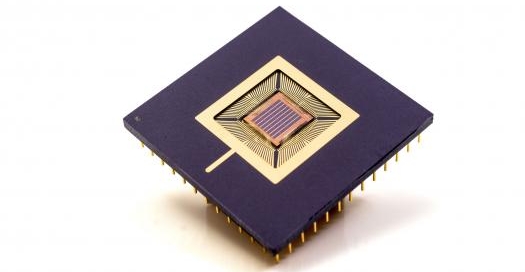Imec demonstrates self-learning neuromorphic chip that composes music

At the imec technology forum (ITF2017), imec, research and innovation hub in nano-electronics and digital technologies, demonstrated the world's first self-learning neuromorphic chip. The brain-inspired chip, based on OxRAM technology, has the capability of self-learning and has been demonstrated to have the ability to compose music.
The human brain is a dream for computer scientists: it has a huge computing power while consuming only a few tens of Watts. Imec researchers are combining state-of-the-art hardware and software to design chips that feature these desirable characteristics of a self-learning system. Imec's ultimate goal is to design the process technology and building blocks to make artificial intelligence to be energy efficient so that that it can be integrated into sensors. Such intelligent sensors will drive the internet of things forward. This would not only allow machine learning to be present in all sensors but also allow on-field learning capability to further improve the learning.
By co-optimizing the hardware and the software, the chip features machine learning and intelligence characteristics on a small area, while consuming only very little power. The chip is self-learning, meaning that is makes associations between what it has experienced and what it experiences. The more it experiences, the stronger the connections will be. The chip presented today has learned to compose new music and the rules for the composition are learnt on the fly.
It is imec's ultimate goal to further advance both hardware and software to achieve very low-power, high-performance, low-cost and highly miniaturized neuromorphic chips that can be applied in many domains ranging for personal health, energy, traffic management etc. For example, neuromorphic chips integrated into sensors for health monitoring would enable to identify a particular heartrate change that could lead to heart abnormalities, and would learn to recognize slightly different ECG patterns that vary between individuals. Such neuromorphic chips would thus enable more customized and patient-centric monitoring.
"Because we have hardware, system design and software expertise under one roof, imec is ideally positioned to drive neuromorphic computing forward," says Praveen Raghavan, distinguished member of the technical Staff at imec. "Our chip has evolved from co-optimizing logic, memory, algorithms and system in a holistic way. This way, we succeeded in developing the building blocks for such a self-learning system."

































